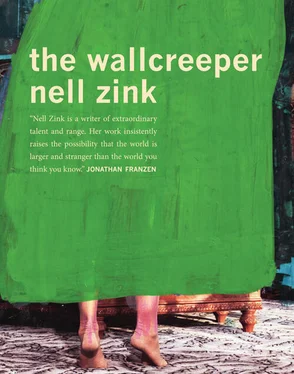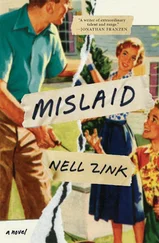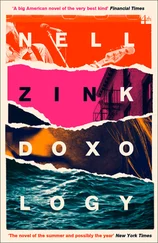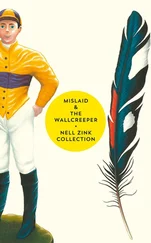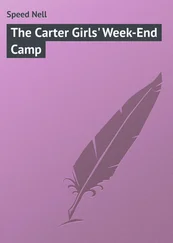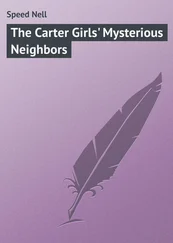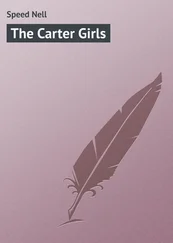Doing extra shifts at the strip club totally stressed her out. She was making enough money to think of visiting Berlin on her own, but she had to dance in a much more athletic manner and almost continually, and the guys were closer than they were in the coffeehouse. Right up in her face, as she put it.
Eventually I had to say something, although I am her little sister and not entitled. I said, “You just spent two entire minutes complaining about how your coworkers are bringing down the neighborhood by getting old. Do you have any idea how that sounds?”
“Give me a break, Riot Grrl,” she said. “The T&A industry is not about self-determination. It’s a market. I’m in direct competition with these old biddies, and we share responsibility for maintaining each other’s value. You have to remember that a stripper is a commodity fetish. You can’t have sex with me. I exist to be looked at. So the problem is my legs.”
“What about them?”
“Look at them.” She stuck her leg out at a high angle and waved it around near my head. “Look at my leg. What do you see?”
“It looks fine,” I said. “You have pretty legs. Look how little your kneecaps are. They’re almost concave.”
“You don’t get it,” she said. “On stage, you need long legs. Pretty works on video, but I don’t want to make videos. I want to make tips. But I can’t, because I’m short. Unless I make a video. Then I can be a headliner. My boss wants me to make a video.”
Being even shorter, I pondered her tragedy abstractly and could think of nothing to say.
“You know how my legs got like this?” she added. “You give up eating when you’re nine because you don’t want to be fat like your mom. But mom wasn’t even fat! My whole growth spurt, you know where I invested it? In my hips. My pelvis is so wide, I could give birth to a calf. At least you had the sense to get married the first time somebody asked you. You can sit on your ass and keep trying to have a baby until kingdom come. I don’t even want to know what kind of guy would marry me now. I was stupid to think I could do any job I wanted and it wouldn’t rub off. Now I’m starting to acquire the stripper habitus, and pretty soon I’m going to be forty-five, preemptively shoving my butt in my fiancé’s face so he doesn’t shine his flashlight at my tits.”
“A life laid waste before it began,” I said, quoting Stephen’s frequent references to the profoundly discouraging climax of the classic Icelandic novel Independent People by Halldór Laxness.
“I wouldn’t go that far.”
“No, seriously. You act like you’re trapped in Tukwila, but I bet your boss is surprised every time you show up for work. I bet your landlord wonders what’s wrong with you every time he gets a check! Tukwila is a place people walk away from and never look back.”
Tukwila, in my opinion, was the trap in the drain. Nobody lives there voluntarily except people who saw nothing but westerns before their grandfathers pawned their TVs. If your basis for comparison is the town Clint Eastwood paints red and renames “Hell,” you might like the suburbs of Seattle just fine. For me, even the city was a stretch. Easterners hear “coffee culture” and think of Vienna, not longshoremen idling their pickups at a drive-through. They don’t know the uniform polo shirts at Starbucks are the alternative business model for when you want women customers to let their guard down. They hear “beach” and think of sand, not prefab boathouses selling onion roses and buckets of beer.
Stephen claimed on the phone to be sad I hadn’t really been pregnant. “It’s true!” he said. “A baby from that needle-dick would have been cute!”
I said I would do my best not to get pregnant again until I saw him. Then I told him the really stunning news: Tukwila was swarming with little tiny birds called bushtits that look like long-tailed tits, only cuter, because smaller. Much smaller, and even cuter.
“No way!” Stephen said. “You told me Tukwila is like a trailer park on the moon!”
“I lied! It’s the heart of darkness! There are flickers all over the place! They’re nesting in the façade of H-Mart!”
“Flickers! Too cool!” Stephen said.
We had to yell because my sister didn’t have a landline or even a real computer. She had inferior versions of everything in the world on her phone — entire news stories that read “Italian Assassin Bomb Plot Disaster” or “Lindsey Surgery Denial Scandal About-Face,” Voice over IP, little tiny bushtit-sized e-mail messages from men saying things like “Busy tonight? Me, too” and “Can’t stop thinking about last March.” Her phone service was a joke, but the price was right. She would have been ashamed to use anything else.
We went out for karaoke that night with some of her colleagues from the coffee place. She sang “Because of You” and I blushed. I sang “Waterloo” and thought of Stephen. I got drunk and told them they should unionize, and my sister told me to shut up and sing “How Soon Is Now,” to which she cried.
Out in the parking lot, she said, “Watch me,” and waited until we were all staring. Then she ran a few steps and did an aerial cartwheel, landing neatly on the soles of her boots.
We stood dumbstruck and dumbfounded.
“Gymnastics is forever,” she said. “It’s like riding a bike.” She did it again.
We all began to laugh. The strength and beauty of what we had seen was so incongruous. My sister, dancing on air. Levitating like a crane. And without a conspecific anywhere this side of Chicago. I had to get her out of there.
In the car, we tallied her marketable skills. It was a short list: Latin, Greek, exotic dancing, coffee drinks. I said it was very promising. “You would get a job in Berlin so fast,” I said. “You would have such a good time. You would meet such cute guys.”
“I’m there,” she said. “I have nothing to lose.”
Most of the time, when people say that, they’re sort of kidding, but in her case it was literally true. My sister Constance folded her tents in Tukwila and bought a flight the same day as mine.
Stephen was up near Kossovo, counting fervidly. He had learned to identify birds of prey by the hairballs they coughed up and the precise arrangement of their victims’ feathers around a stump. He had a book about feathers and another book about seagulls and the many eerie transformations they undergo on their way from being indistinguishable to being basically identical. There was always something going on — some promising-looking habitat to map for its potential. But Albania wasn’t Wörgl. He seldom got close to a live bird. Albanians shoot to kill, and they kill to eat, which makes them less repugnant than non-hungry hunters but more lethal. Birds on the move were invisible and nearly silent. They knew better than to draw attention to themselves. They carried on their courtships like hustlers cruising a church picnic, and defended their territories like Beau Geste.
New migrants weren’t always up to date. Big flocks would land, or try to, then circle bewildered while one after another was mown down in a flurry of lead. Some liked the look of Albanian wetlands and decided to molt there — the last decision they would make in this lifetime. Birds were executed for the crime of tasting good or the crime of being stringy and gamy. But the hunters and their decoys and semi-automatics couldn’t be everywhere at once, so Stephen found plenty to count.
Or count and revise: thirty-five dunlins that landed, seventeen dunlins that took off, six dunlins that made it over the next ridge — an attrition rate that would clearly result in no dunlins at all one stop later, but maybe the hunters are all on this side today. The potential was what mattered. Even in Canton Geneva, there’s always the “first disturber,” the windsurfer in neoprene who heads out on the first sunny day in February to divest a lake of thirty thousand birds and leave you extrapolating what might have been. Counting bush meat in the market in Shkodër was just another way of acquiring a basis for extrapolation. If a species can’t show itself without being shot at, it’s comforting to think it’s timid. If no nests have been seen for the past ten years, it’s nice to know the species requires perfect isolation to breed. Without the tips of icebergs, humankind would already be very lonely.
Читать дальше
Конец ознакомительного отрывка
Купить книгу
